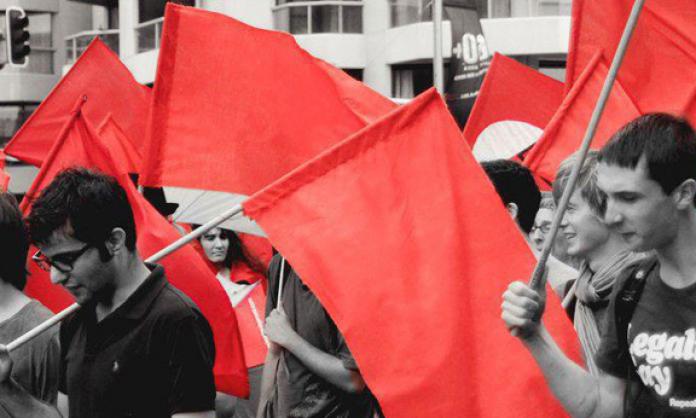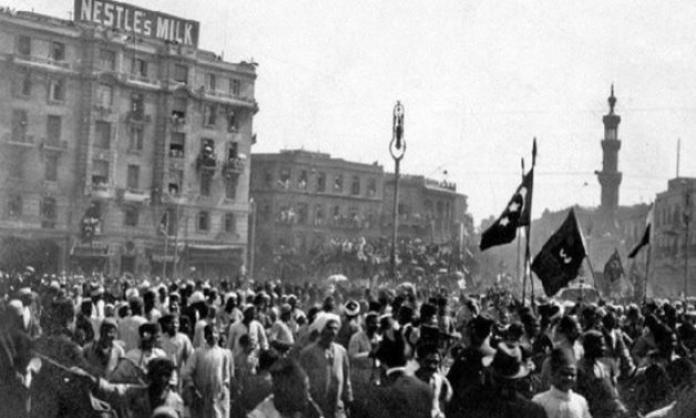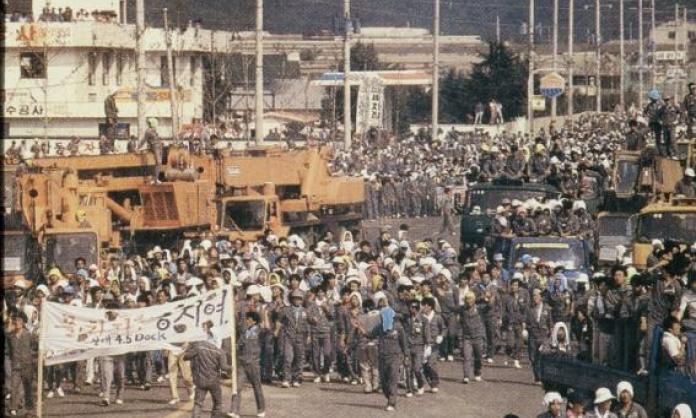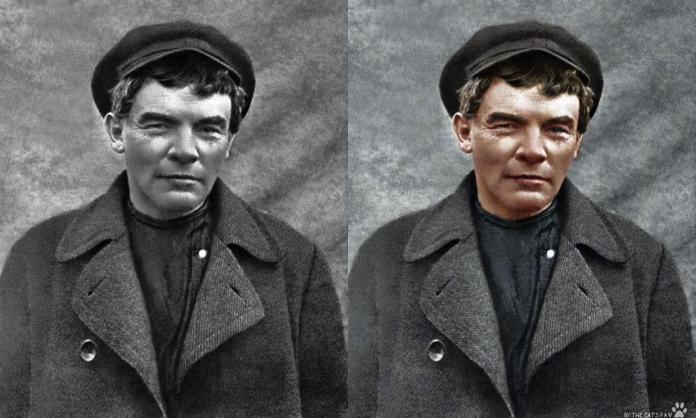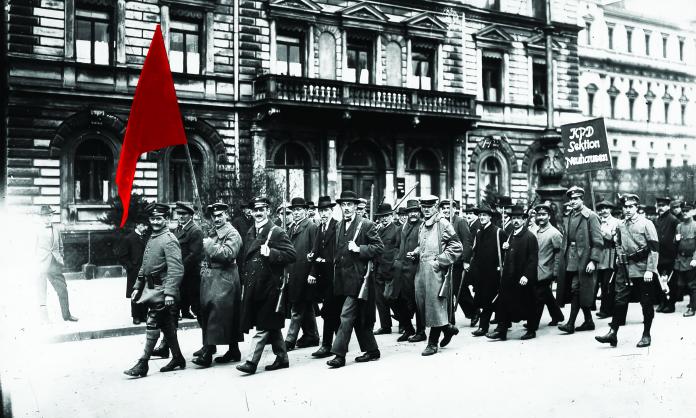The question of organisation is a crucial one for socialists. Capitalism divides us and isolates us from one another. It encourages us to think that only the rich and powerful have the right to decide anything. At the same time, it breeds resentment and anger, and a desire for change. The status quo is held together in no small part because those desiring change feel powerless to effect it.
This feeling reflects a reality. As individuals, our capacity to challenge things is severely limited. Approach your boss alone and demand a pay rise and you’ll be laughed out the door. Refuse to repay your student debt because you think education should be free and you’ll soon find yourself in trouble. And this is to say nothing of colossal issues like climate change, the refugee crisis or global inequality.
To effect change, workers, students and the oppressed need to get organised and act collectively. This has always been true, though it’s not the way history is usually taught. More often, emphasis is put on the role of significant individuals like Martin Luther King or Nelson Mandela, while the actions of the thousands of activists they organised, learnt from and led are glossed over.
There is a reason for this: mass action poses a potential threat to capitalism.
Marx argued that “the emancipation of the working classes must be conquered by the working classes themselves”. This means that to achieve socialism, the mass of workers need to take collective control over society’s resources and reorganise them according to the needs of the majority. This is not a task that can be undertaken on behalf of workers by any organisation or individual. It can only be done by the mass of workers themselves. But revolutionary organisation is nevertheless essential. To understand why, we have to look at how capitalist society is organised, and how the powerful secure their privilege and protect the status quo.
Capitalist power
The capitalist class is the most well-organised and powerful ruling class in human history. It has a stockpile of weapons that could destroy the world several times over. It has a state apparatus that maintains an incredible level of discipline over the population. In the workplace, this discipline is reinforced by strict corporate hierarchies that keep workers constantly under the thumbs of their managers.
This is backed up by an extensive ideological apparatus. The mass media flood society with ideas that reinforce the status quo. Public spaces are saturated with advertising and corporate logos that make it feel like our lives revolve around consumption. In our formative years, our thoughts and beliefs are shaped by an education system that does little more than prepare us for the workplace by normalising discipline and forcing students into competition with one another.
There are other less obvious but just as significant means by which workers are conditioned to accept the status quo. Workers’ very real lack of day-to-day control tends to reinforce the idea that it’s necessary or inevitable for a minority to be in charge. Similarly, the ruthless competition of the marketplace makes it seem as though human beings are inherently selfish and greedy. In these and many other ways, the experience of living under capitalism inevitably leads to ways of thinking that accord with and naturalise the inequalities and prejudices of the system.
If this were all that there is to it, then the prospects for socialism would be bleak. But workers’ lives and attitudes are not shaped solely by these structures, or by the efforts of the ruling class to disseminate pro-capitalist ideology. Working class life involves many experiences that are at odds with the received wisdom of capitalism, and which therefore call it into question.
The fact, for instance, that work requires a high degree of cooperation between people, and that the whole world economy would be unable to function without the routine cooperation of millions of workers, undermines the idea that people are hopelessly individualistic, selfish or in eternal competition with one another.
Struggling to survive on a wage, dealing with mistreatment from despotic bosses, being betrayed by politicians and having the fruits of your labour sold back to you for a profit, likewise create a sense of commonality among workers that is contrary to the individualised ideology of capitalism.
A consciousness of this shared experience tends to break down the artificial divisions of gender, race or religion that are imposed on people in dog-eat-dog capitalism, and that the bosses rely on to turn workers against each other.
On top of this, the incessant pressure on workers to work harder and longer for lower pay routinely drives workers to act against their employers, whatever their beliefs are. Such resistance forges bonds between workers and creates an awareness of the need for collective organising.
Contradictory consciousness
Workers then are subject to pressure both to accept and obey the capitalist system, and to challenge it. A consequence of this is that most workers have a mixture of ideas about the world they live in. Some ideas back up and normalise the capitalist system, others lead in the opposite direction. The Italian revolutionary Antonio Gramsci called this “contradictory consciousness”. It is an inevitable part of living under capitalism.
The mixture of ideas that workers hold varies throughout the working class. Some workers, because of strong traditions of union organising or political engagement, or for a variety of other reasons, can have a particularly strong sense of class consciousness. On the other hand, workers who lack these traditions, or are more isolated from one another, can be more susceptible to capitalist ideology and have less of a belief in their own capacity to shape the world around them.
The different organisations that exist within the working class movement also play a role in shaping consciousness. Trade unions, reformist political parties and revolutionary organisations, depending on their respective sizes, histories and orientations to the class struggle, can profoundly affect the degree and nature of working class consciousness.
The complex array of influences that shape class consciousness is an important argument for socialist organisation. For workers to unite and effectively exercise their power against their rulers, they need to have a high level of class consciousness. Workers have to understand clearly their common interests, and feel confident to act on them. They need to do this not only in defiance of the common prejudices of capitalism, but also in spite of those who would seek to undermine such action, or persuade them that another course is preferable.
The most confident, class conscious workers therefore need to act to build the confidence of the weaker sections of the class, to draw them into unity with their fellow workers and help them organise to realise their power. This is true also of the middle ground of workers who may be confident to organise and fight and may also hold a profound sense of solidarity with other workers, while still being unsure about whether compromise with the old order is possible or a more radical solution is necessary.
A socialist organisation is the key means by which the most radical workers can act to build class consciousness and maximise the possibility that workers’ struggles become a challenge to the system rather than an isolated episode.
In an organisation, socialist workers, students and activists can come together to clarify their political approach and educate one another about working class history and politics. In doing so, they can vastly improve their capacity to build the strength of the working class movement, win other workers to a socialist world view, and build contemporary struggles against the injustices of the system.
This can happen in a number of ways. By pooling the experiences of workers across a wide variety of workplaces, an organisation not only enables its members to develop a broader understanding of the class struggle, but also enables them to sharpen and clarify the arguments that need to be waged to convince more people of socialist positions.
An organisation also enables younger radicals to learn from those with more experience. And a socialist organisation can act as a counterweight to the barrage of propaganda and distortion that the ruling class uses to write the working class out of history or check its momentum. Through publications and public organising, socialist organisations preserve the history and achievements of the working class movement, and use that knowledge to strengthen future struggles.
Socialist organisation also enables its members to coordinate activism on a large scale and in a much more effective manner than they would be able to as atomised individuals. The enormous benefits of this are evident in Australian history.
In the early 20th century, the revolutionary Industrial Workers of the World led the first mass struggles against racism and war, defeating conscription and building unity between white and immigrant workers. In the great radical movements of the 1960s and ’70s, it was the strenuous organising of Communist Party members that made the Australian working class among the most militant and socially conscious in the world.
Socialists are not the only people who recognise the power of workers and seek to win influence within the class. Trade union leaders and even politicians can at times pay tribute to the achievements of the labour movement. But the loyalties of such figures are always extremely limited. They may bring workers together to help bargain with an employer or win an election, but they are hostile to workers themselves taking control of society (which might threaten their parliamentary seats or cushy jobs in the bureaucracy). At best, they combine partial support for workers with an insistence on compromising with capitalism.
Against this, revolutionary socialists must organise their own current in the workers’ movement that argues to strengthen the confidence, unity and capacity of workers to fight for their liberation, not settle for compromises.
Building for the future
Winning better pay and conditions, or stopping monstrosities like the Adani coal mine or the incarceration of refugees, are vitally important. But even if won, these are only partial victories against the system. So long as capitalism remains, there will be more atrocities, injustices and environmental destruction.
Rather than start from scratch each time, consolidating from these struggles a bigger layer of socialists committed to thoroughgoing social change helps to strengthen future campaigns and tips the balance of forces away from reformists and other apologists for the system and towards revolutionaries. The experience of fighting various injustices is a key way in which larger layers of people can start to see the connections between different forms of oppression, the importance of solidarity and the need for radical change.
All this means that socialist organisations must be built before struggles or revolutions take off. During revolutions and mass struggles, ideas and politics shift rapidly. Through mass assemblies, strikes and occupations, workers take up political questions usually confined to their rulers, and become open to ideas they may have previously dismissed, or thought of as unrealistic.
In such situations socialists can win millions to their world view – but not without an organisation that workers are already familiar with, and which is capable of giving a lead and providing a viable way forward through the challenges of any campaign or struggle, even as the storm of conflicts and struggles that a revolution creates rages around them. Without such an organisation, more conservative forces will enter the fray unopposed, and exploit the uncertainties of workers in order to contain them and preserve the status quo.
Socialist organisation is a vital element in the struggle for working class revolution and socialism. As the carnage of capitalism accumulates around us, we urgently need to win more people to this project so that we are better positioned in the battles to come.




